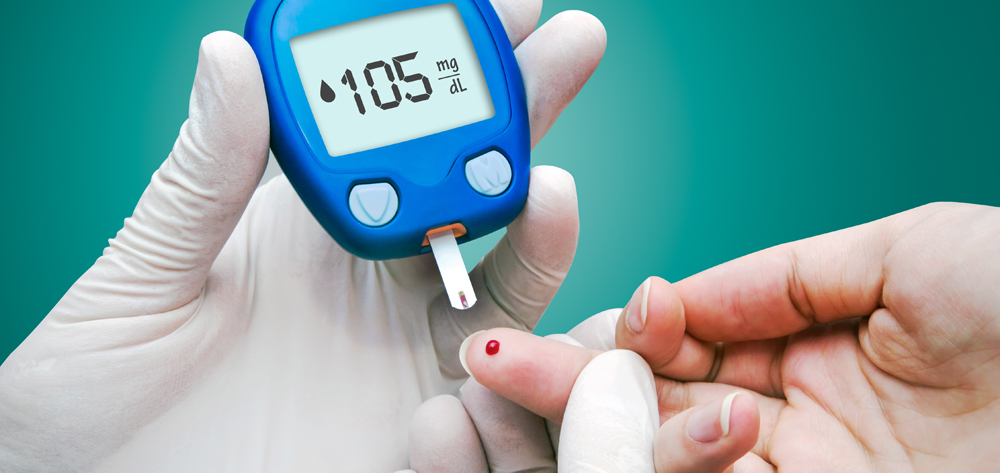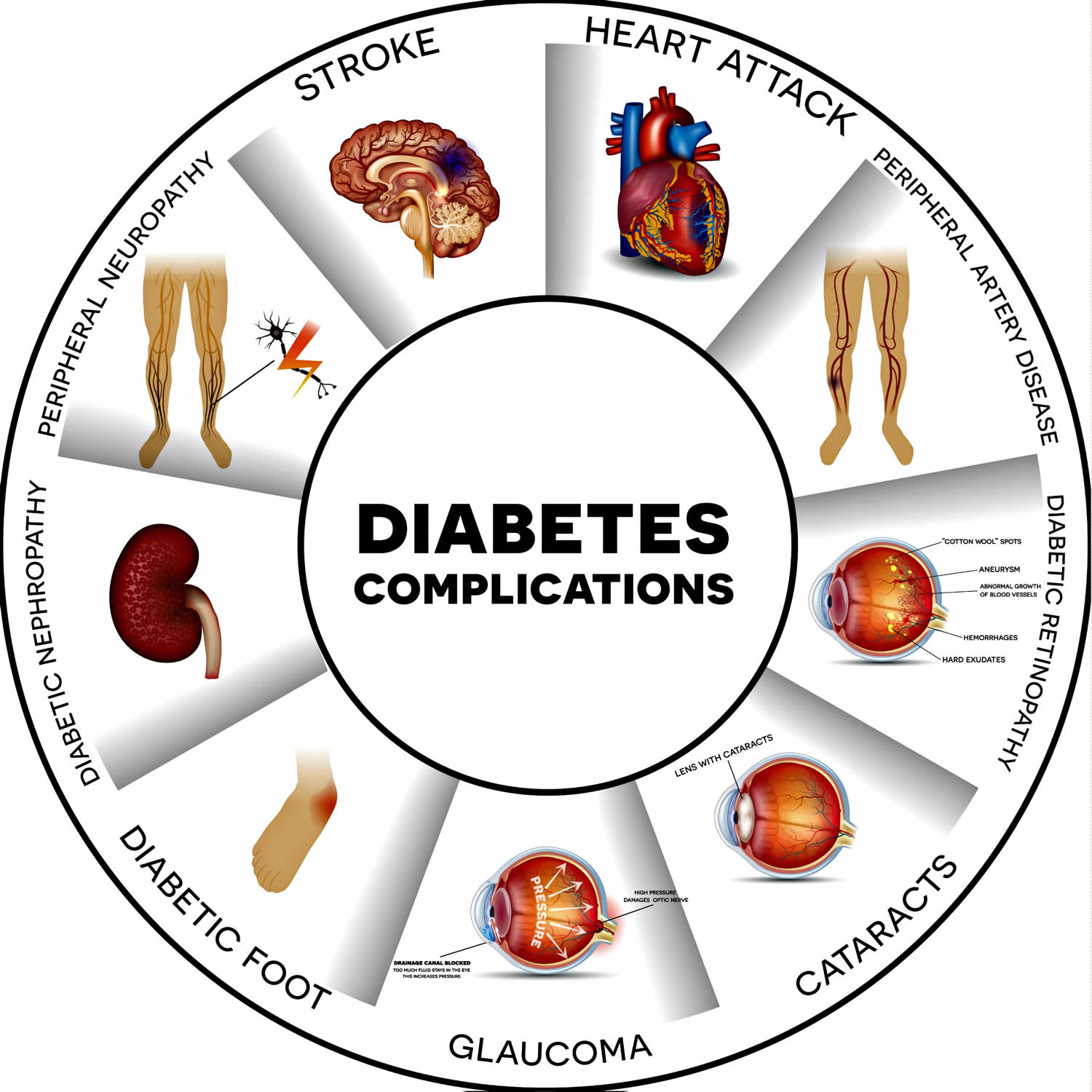

Diabetes is a disease in which your blood glucose, or blood sugar, levels are too high. Glucose comes from the foods you eat. Insulin is a hormone that helps the glucose get into your cells to give them energy.

Over time, having too much glucose in your blood can cause serious problems. It can damage your eyes, kidneys, and nerves. Diabetes can also cause heart disease, stroke and even the need to remove a limb. Pregnant women can also get diabetes, called gestational diabetes.



→ Many people are unaware that they have diabetes, especially in its early stages when symptoms may not be present.
→ There is no definite way to know if you have diabetes without undergoing blood tests to determine your blood glucose levels (see section on Diagnosis of diabetes).
→ See your doctor if you have symptoms of diabetes or if you are concerned about your diabetes risk.
→ Heart disease: Diabetes can damage the blood vessels and lead to heart attack and stroke.
→ Neuropathy: High blood glucose levels can result in diabetic neuropathy, another name for nerve damage. Peripheral neuropathy is common in people with diabetes. It affects the feet and hands. Together with poor circulation, this results in poor wound healing. Infections and ulceration can develop. Without rapid treatment, tissue death can occur, and amputation may be necessary.
→ Gastroparesis: Damage to the vagus nerve, which sends signals to the digestive tract, can affect the stomach's ability to empty. Symptoms include nausea, heartburn, weight loss, bloating, and loss of appetite.
→ Gum disease and dental decay: Diabetes reduces the ability of the mouth and gums to heal and fight infections. These factors increase the risk of tooth decay and oral infections.
→ Kidney disease: Diabetes can also damage blood vessels in the kidneys, impairing function. The kidneys play a vital role in balancing fluid levels and removing waste from the body. Kidney health is therefore vital for preserving overall health.
→ Infections: A person with diabetes is more prone to infections. It can take longer to recover, and the symptoms can become more severe more quickly than in people without diabetes. An untreated infection can lead to sepsis or other problems.
→ Vision problems: High blood sugar levels can damage the eyes and cause vision loss.
→ Depression: Researchers have identified a strong link between diabetes and depression. While this may be a result of managing life with a chronic condition, they might also share similar mechanisms in the body. Diabetes and depression also often make each other worse when they occur at the same time.
→ Diabetic ketoacidosis: Very high blood sugar levels that last for a long time can lead to diabetic ketoacidosis (DKA), in which the blood becomes too acidic. This can be life-threatening without treatment. A dry mouth, shortness of breath, and fruity smelling breath are symptoms.


